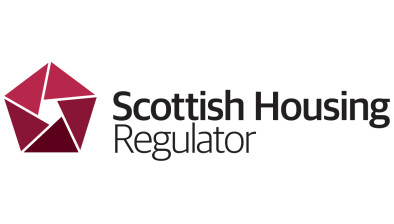Satisfaction among social housing tenants remains steady, Regulator’s National Report reveals

George Walker, SHR chair
Nine out of ten tenants remain satisfied with the quality of the homes and services their landlord provides, the Scottish Housing Regulator (SHR) revealed today as it published its eighth National Report on the Scottish Social Housing Charter.
The report gives the headline findings of social landlords’ performance against the standards and outcomes of the Scottish Social Housing Charter during 2020/21, while recognising the unique and challenging context the COVID-19 pandemic created for social landlords.
Tenant satisfaction with the quality of homes remains high at 87%, average tenant satisfaction with opportunities to participate has remained steady at 87%, and tenant satisfaction with being kept informed remains at 92% having increased steadily since 2014/15.
On rents, the Regulator’s report states that average weekly rents went up to £83.70 from £81.47 last year, the percentage of tenants satisfied that their rent is good value for money decreased to 83% from 84%, and average planned rent increases went down to 1.2% from 2.5% last year.
On neighbourhood management and complaints, the percentage of tenants satisfied with their landlord’s contribution to neighbourhood management decreased to 86%. The percentage of anti-social behaviour cases resolved remained at 94%. And the percentage of first stage complaints responded to in full improved to 84%.
The report also shows that during 2020/21 landlords took longer to complete emergency repairs with the response time up to 4.2 hours from 3.6 hours last year.
The Regulator has also published a suite of performance information alongside the National report including individual landlord reports, comparison tool, and statistical information.
The landlord reports and comparison tool are designed to let tenants find out about their landlord’s performance in the areas tenants said matter most: homes and rents, quality and maintenance, neighbourhood management, tenant satisfaction, and value for money. The statistical information allows landlords and others to benchmark performance.
George Walker, chair of the Scottish Housing Regulator, said: “Our National Report on the Scottish Social Housing Charter shows that overall, most tenants remain satisfied with the homes and services their landlord provides. It also shows some areas of performance improved or were maintained, and there have been some dips in performance this year.
“The COVID-19 pandemic brought unprecedented challenges for social landlords and their tenants over the past year. And we know Scotland’s social landlords were amongst the first to respond to the challenges of COVID-19 and support their tenants through the public health crisis.
“It is clear that the March 2020 national lockdown in response to the escalating COVID-19 pandemic had an immediate impact on social landlords’ ability to deliver services as they normally would. Landlords had to operate within changing levels of restrictions throughout 2020/21. This had an impact on the performance of landlords, and so on the data they have reported to us.
“While it is not possible to be definite that any and every dip in performance is, in whole or in part, a direct consequence of the pandemic, it is unquestionably the most significant contextual factor in assessing performance in the last year.
“Social landlords will continue to have a range of challenges to contend with as they recover out of the pandemic. Over the coming months, we will continue to work with landlords, tenants, the Scottish Government and the Social Housing Resilience Group as social landlords continue to work to build back the range of services they provide for tenants and other service users.”
The Regulator’s national analysis, landlord reports and comparison tool, statistical information, and all of the information from landlords about their performance are available on its website.







